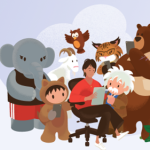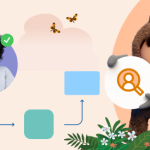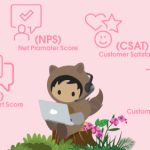Customer service representatives and social media users are no strangers to the growing phenomena of “cancel culture.” As humans, however, we crave interaction and acceptance. So why is it now common to cancel services after a single negative interaction? How can we use emotional intelligence (EQ)in our interactions to deepen relationships and increase customer loyalty?
This post discusses what cancel culture is, what’s emotional intelligence and why it’s important, and how people, especially customer service reps, can use EQ to turn cancellations around for better customer retention. Here’s a personal example:
The impact of thoughtful presence
When I worked for a medical equipment and supplies company, I spoke with a new client who recently welcomed twins. A stressful time for any parent; both babies used feeding tubes and depended on formula and medical supplies. The mother, almost out of supplies, was having a poor customer experience.
For context, insurance covers a certain amount of product based on the prescription and has strict guidelines for refills. This client’s request was three days early by insurance coverage standards. Her request for a shipment was rejected, and she was understandably upset.
When she reached me, I listened and put myself in her shoes. I imagined how she felt with two medically-fragile babies to protect. She was probably exhausted physically and emotionally.
I told her I would do what I could to help her. Before I put her on hold, I made sure she understood why and how soon I’d be back on the line. I arranged for three days of formula for same-day delivery and set up the refill for the earliest available date.
At the beginning of the call, the client was beyond frustrated. By the end, she was grateful and apologetic. She even requested to speak to my manager to share her relief with how I handled the situation.
Using emotional intelligence, I empathised with the client and provided the best solution. This prevented the type of customer experience that leads to cancel culture. Instead, she was on the path to customer loyalty.
What is “cancel culture”?
Cancel culture describes a desire to “cancel out” a person or community from social media platforms. Or more loosely, to boycott or quit a business, product, or service, after a dissatisfactory experience. This is sometimes referred to as “call-out culture.”
In customer service, more reps these days find clients in a rush to quit services or cancel subscriptions.
In fact, American Express research found more than half of Americans canceled a planned purchase because of bad service. One-third of survey respondents said they think about changing companies following a single poor service experience.
How to use emotional intelligence in customer service
Emotions are contagious. How you interact with others impacts how a person feels about you, and the company you represent. When you yawn, I yawn, and when you’re enthusiastic, I’m enthusiastic!
When you can’t see body language, your tone becomes even more influential. Your emotions set the tone, and you decide what that tone is.
According to Psychology Today, emotional intelligence is “the ability to identify and manage one’s own emotions, as well as the emotions of others.”
It’s said to include three main skills:
-
Awareness — identifying one’s own emotions
-
Regulation — managing one’s own emotions and helping others do so
-
Empathy — applying emotions to tasks like problem-solving
Fortunately, it’s possible to hone these skills.
Examples of EQ for customer service reps
Self-awareness
You may think of yourself as “business-like” or “to the point.” Others may read it as curt or unfriendly. How aware are you of the impact of your speech patterns, word choice, and tone? If they’re courteous, customers are more likely to accept a gentle “no.” This awareness helps defuse what could be a tough conversation into a more productively pleasant one.
Ask yourself:
1. What are you doing at this moment?
2. How are you feeling about it?
3. How will it affect your interactions?
Self-regulation
Can you listen to a complaint and react without responding emotionally? Regulation allows you to stay calm, hold yourself accountable, and adapt to new situations.
Examples:
Customer: You overcharged me!
Employee: I understand your frustration; I am here to help. Let’s work together to resolve this issue.
Customer: I am not happy with my service.
Employee: I am sorry to hear that. Let’s fix it; how can I make this right?
Empathy
The ability to empathise with how other people think or feel is one of the most recognised requirements for delivering excellent customer experiences.
Empathy facilitates trust, and it’s one of the surest paths to connecting with customers.

For example, a guest is disappointed they must cancel a long-anticipated trip. They may have waited in a long queue to reach you.
Try this:
-
“If I am understanding correctly …”
-
“I’m sorry you’ve had to deal with this …”
Put it all together
Example conversation:
What happened: “I understand your technician did not arrive at the scheduled time.”
What was done: “I’ve checked the technician’s route and see he was delayed.”
What’s next: “We will re-route the technician for same-day delivery. I apologize for any inconvenience this may have caused.”
Your next interaction using your people skills
Analyse your reactions, how do you respond to people? Do you rush to conclusions? Are you listening to reply, or are you listening to understand?
An EQ approach enables employees to turn challenges into opportunities to create great customer experiences and encourage customer loyalty. Regular self-reflection helps boost emotional intelligence, increase confidence, and improve the impression you leave on others.
Take the next step! Deepen your understanding of EQ and how it benefits your personal and professional relationships with Trailhead’s free online training.

























